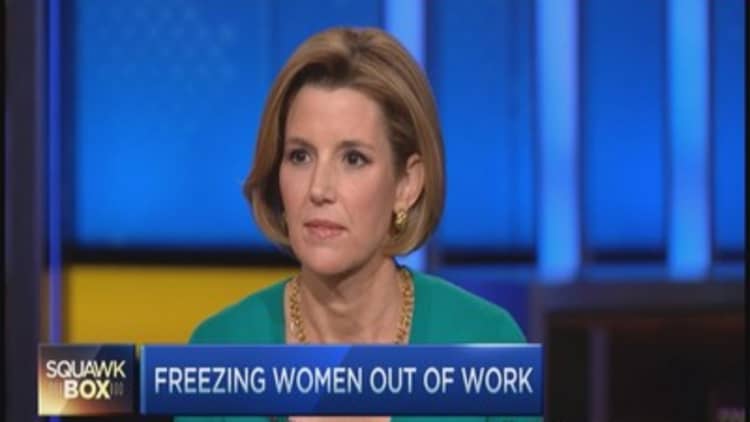There's been a lot of talk about the lack of women going into technology jobs. But new research shows that it's not just a pipeline problem: women with MBAs are also choosing to leave the high-tech industry at a faster rate than men.
More than half of women (about 53%) who started out in the tech-intensive industry working in a business role immediately following completion of their MBA left to take a position in another industry, compared to 31 percent of men, according to the report prepared by Catalyst, a nonprofit group that promotes the advancement of women in the workplace
"They are not leaving the workforce," said Anna Beninger, the director of research at Catalyst. "They are taking their talents elsewhere."
Read MoreGender pay equality improving, but...
Technology companies often cite the "education excuse" as a reason for the low number of women in their ranks, Beninger said, but the new research refutes that--at least when it comes to the business side.
The Catalyst research parallels other studies that have found women without MBAs don't stick around technology companies either. The Center for Talent Innovation earlier this year released a report that found women are 45 percent more likely than men to leave their jobs in science, technology, engineering, and mathematics (STEM) jobs in their first year.
The new Catalyst survey was based on interviews in 2007, 2010, 2011 and 2014 with 5,916 MBA graduates working in the United States, Canada, Europe and Asia in jobs such as administration, consulting, finance, marketing, policy and legal. Of the MBA women interviewed for the survey, 75 percent either had a bachelors degree in computer science, engineering or math or work experience in those fields. But only 36 percent of those women returned to those fields once they had their MBA.
The study also points out that women with MBAs are less likely to enter high-tech careers and, if they do, they are more likely than men to start at an entry level position (55 percent for women compared with 39 percent for men) and therefore earn less, which can contribute to the pay gap.
Some of the reasons they cited for their departure include a lack of role models, feeling like an outsider in their work groups and vague evaluation criteria. The study also found that 21 percent of the women, compared with just 12 percent of men, said they had left the field for a personal reason, including family issues, a spouse or partner's relocation or wanting to make a greater social contribution.
The problem is not just that there aren't enough women entering the pipeline, said Beninger. "There is a leaky pipeline."



